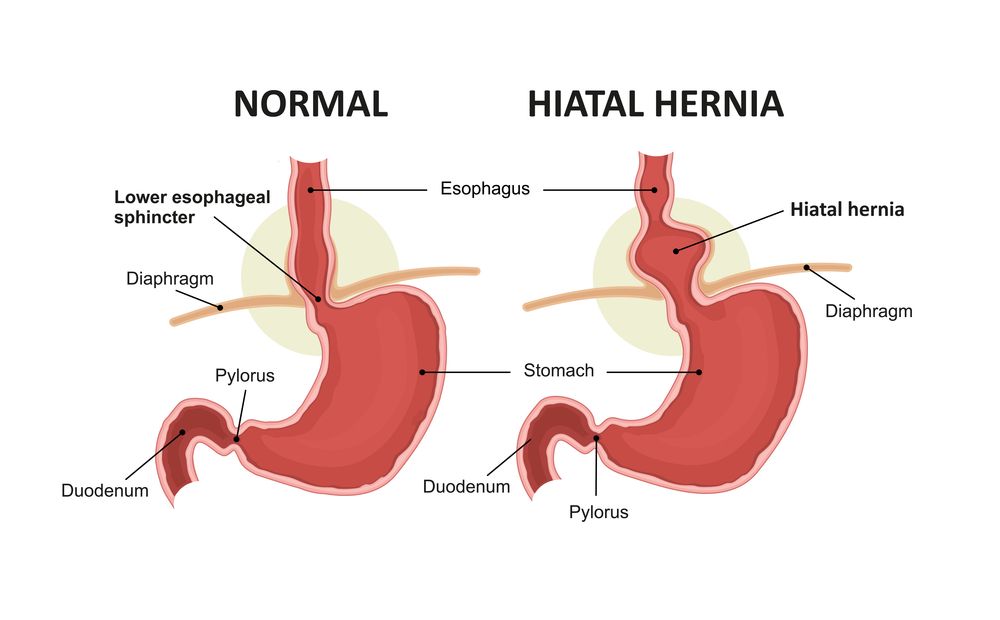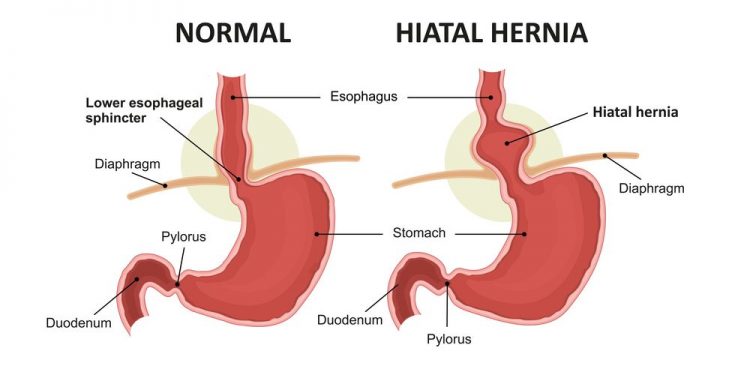Hiatal hernia is a condition in which part of the stomach protrudes through the diaphragm. This can cause chest and abdominal pain. It can also lead to acid reflux.
A hiatus hernia is often a result of weakened muscle tissue in the diaphragm, which acts as a wall in the middle of the body. As the muscles become weak, a part of the stomach can push through the diaphragm. The stomach can then become trapped and block the esophagus.
Hiatus hernias are usually found in people with GERD. This is where the contents of the stomach end up in the esophagus, causing heartburn, nausea, and other symptoms. However, they can also occur in people who have never had GERD. Some of the most common symptoms of hiatal hernia are a sour or bitter taste in the back of the throat, regurgitation, and chest pain.
If you experience any of these symptoms, you should contact your physician. Your doctor may order a test to confirm the diagnosis. One of the tests that can be used to diagnose a hiatus hernia is oesophageal manometry. During the procedure, your physician will put a thin tube down your throat to examine the inside of your esophagus. Once the tube has been inserted, your physician will measure the pressure of the esophagus when you swallow. They will also check the pH level of your esophagus.
Another test that can be used to diagnose a hiatus is an endoscopy. An endoscope is a thin, flexible tube that is inserted through your throat into your esophagus. This can then be used to take a sample of tissue from your esophagus.

Hiatal hernias can also develop during pregnancy. In addition, people who are overweight or obese are at higher risk of developing this condition. People who are older are also more likely to have a hernia. Genetics can also increase the risk of getting this condition.
Hiatal hernia can be treated by making changes in your diet and lifestyle. This will help prevent the symptoms of a hiatus from getting worse. Other treatment options include medications or surgery. Surgical options include repairing or closing the hole in the diaphragm, and improving the valve between the esophagus and the stomach.
Antacids are medications that relieve the symptoms of a hiatus. You can use antacids like Prilosec or Lansoprazole. While these medications are effective in reducing the symptoms of a hernia, they do not treat it.
Depending on the type of hernia that you have, you may need to have surgery. Surgery can include a fundoplication, which means that the stomach is sutured to the diaphragm. Alternatively, you may need to have your hernia repaired by using a nasoesophageal hernia repair (NEHR) procedure. Both of these treatments can prevent recurrence and reduce the chance of a hernia reoccurring.
You can also prevent a hernia from reoccurring by eating smaller meals. It is also important to exercise, and to avoid heavy lifting and bending over.









